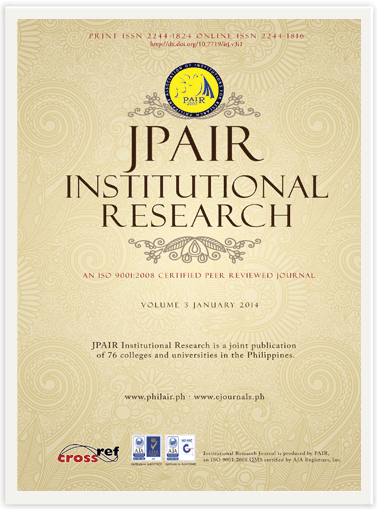Effect of Cooperative Learning Method Anchored on Multiple Intelligence Theory on Students' Achievement in Mathematics
DOI:
https://doi.org/10.7719/irj.v3i1.288Keywords:
Mathematics Education, Cooperative learning method, multiple intelligence theories, traditional lecture method, non-equivalent control group design, Philippines, AsiaAbstract
Cooperative learning is defined as a category of instructional strategies that place students in mixed-ability groups in which students work together to achieve a common academic goal. This type of learning has become more desirable as researchers study individual learning differences and styles as well as multiple intelligences. The theory of multiple intelligences suggests that there are number of distinct forms of intelligence that each individual possesses in varying degrees and that the implication of the theory is that learning and teaching should focus on the particular intelligences of each person. This study was conducted to provide empirical facts on the effect of cooperative learning method supported by multiple intelligence theory on students' achievement in mathematics. This study used the nonequivalent control group design. The instruments used were the 90-item adopted Multiple Intelligence test and the 40-item teacher-made test for the topics Fundamental Operations on Rational Algebraic Expressions, Positive Integral Exponents, and Zero and Negative Exponents. The data gathered were summarized, translated, and analyzed using the mean scores for both pre-test and post-test. The difference between the post-test mean scores of the experimental and control group is statistically significant, which means that students' achievement in mathematics is greatly affected when cooperative learning methods were used as teaching strategies compared to the traditional method. Furthermore, it is strongly recommended that cooperative learning method supported with multiple intelligence theory should be used in teaching mathematical concepts and even in other fields of study.
References
Adeyemi, B. A. (2008). Effects of cooperative learning and problem-solving strategies on junior secondary school students’ achievement in social studies. Electronic Journal of Research in Educational Psychology, 6(3), 691-708.
Downloads
Published
Issue
Section
License
Copyright (c) 2014 May Ann Bague Valencerina

This work is licensed under a Creative Commons Attribution-NonCommercial 4.0 International License.












